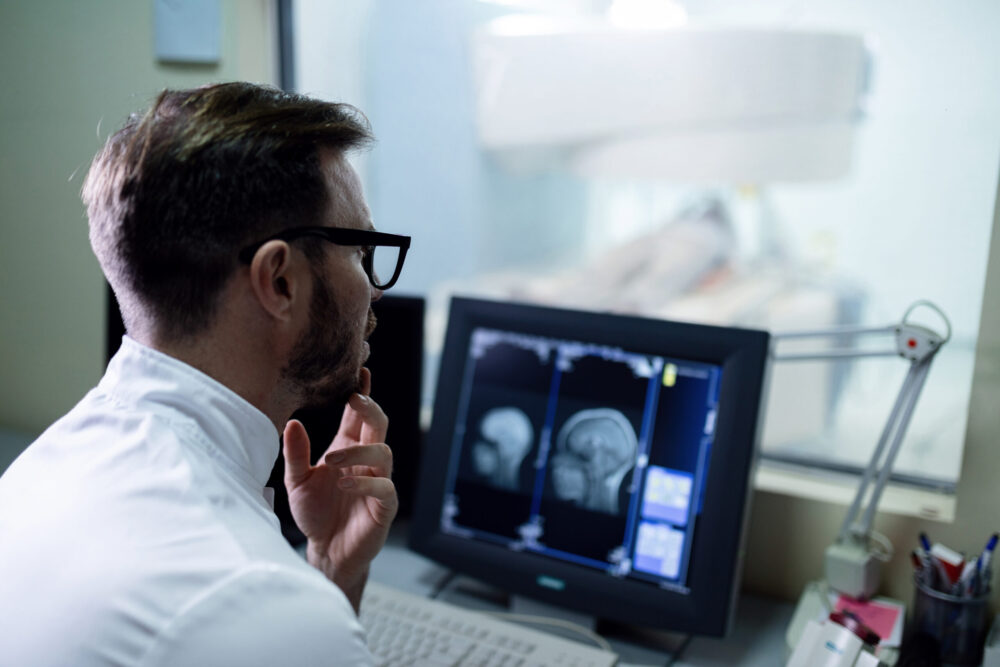Master's degrees
Master's degree in Neurosciences
Teaching has evolved significantly in recent decades, and significant and far-reaching changes are expected to occur in this century. Peter F. Drucker (2017), a philosopher, thinker, and visionary of 20th-century organizations, points out that the world is heading toward a major transformation, where schools, more than any other social institution, will inevitably be affected and therefore face great challenges.
One of the consequences will be a profound change in the role of the teacher, who will be responsible for promoting and creating the conditions for student learning in more complex and varied ways. Lieberman and Miller (2009), specialists in teacher and leadership development, indicate that everyone from cognitive theorists to businesspeople, as well as people outside of educational institutions, is pressuring educational administrators and teachers to teach students how to contextualize learning, solve problems, think critically, and master basic skills.
As Belluzzo (2021) suggests, the society in which we live is radically moving away from the Industrial Society to become an Information Society, or more properly, a Knowledge Society. In this context, information is associated with characteristics of continuous review and increasing levels of complexity, a concept linked to new experiences of space and time, demanding new connections and constant updating, which implies a new perspective on education and the training of people.

PHILOSOPHICAL FOUNDATION
The program is based on humanistic principles that place the human being at the center and transformer of reality.
The essential characteristics of the Master’s program in Neuroscience are summarized in the following aspects:
- It shares the principles of the theories of knowledge derived from constructivism;
- It follows the recommendations proposed internationally by the United Nations Educational, Scientific and Cultural Organization (UNESCO) in 1997 regarding knowledge: knowing how to be, knowing how to do, knowing how to know, and knowing how to collaborate;
- The curriculum design is developed with an area of concentration in Neuroscience and with three thematic axes/lines of research, vertically:
• Basic Neuroscience (NB)
• Neuropsychology (NP)
• Neuroscience and Education (NE) - In a transversal sense, the following variables will be considered:
• Social studies of Science and Technology (considered in one of the specialized subjects: Science, Technology and Society).
• Aspects of Emotional Intelligence in the Digital Age
(considered in the Research Seminars and Workshops).
The objectives of the Master’s Program in Neuroscience are:
To train high-level research professionals in the field of Neuroscience, capable of:
- Developing research capacity to generate scientific knowledge in different areas and spheres of the public sector;
- Strengthening the Neuroscience profession by developing up-to-date knowledge, using relevant methods, and training in reading and interpreting scientific results;
- Preparing professionals capable of conducting, directing, and disseminating research relevant to the transformation and improvement of public service delivery in the region;
- Publish and disseminate the intellectual output and final reports of research conducted by faculty and students as a result of interactive educational activities in the master’s program;
- Promoting and maintaining, as an ongoing activity, colloquia and academic events prepared by faculty and students of the master’s program to cultivate teamwork, scientific production, and intercultural development;
- Preparing students to work both in academia and in sectors related to health, technology, and innovation.
GRADUATE PROFILE:
To train professional experts who are capable of:
- Critically analyzing various historical positions or interpretations;
- Identifying educational needs in the social environment and the public sector;
- Designing and implementing original research projects to provide quality public services;
- Directing and coordinating research teams;
- Planning and implementing projects to improve public services;
- Developing professional development programs for professionals in the public sector;
- Providing professional training in the public sector based on a deep understanding of the competencies and skills required to use innovative strategies linked to modern concepts of communication;
- Exercising leadership in their field of action, maintaining and promoting the ethical and moral principles and values of a democratic society.
CURRICULAR FIELDS
The Master’s Specialized Field in Neurosciences has been organized into three (3) lines of research:
- Basic Neuroscience (NB)
- Neuropsychology (NP)
- Neuroscience and Education (NE)

REQUIREMENTS FOR ENROLLMENT
- Have completed a higher education course (bachelor’s degree, graduate course);
- Complete the master’s degree registration application;
- Submit personal and academic documents along with the registration application.
Sign up to learn more about our courses!
Complete the following form and receive all the information you need to take the next step in your career. Our team is ready to help you achieve your goals!